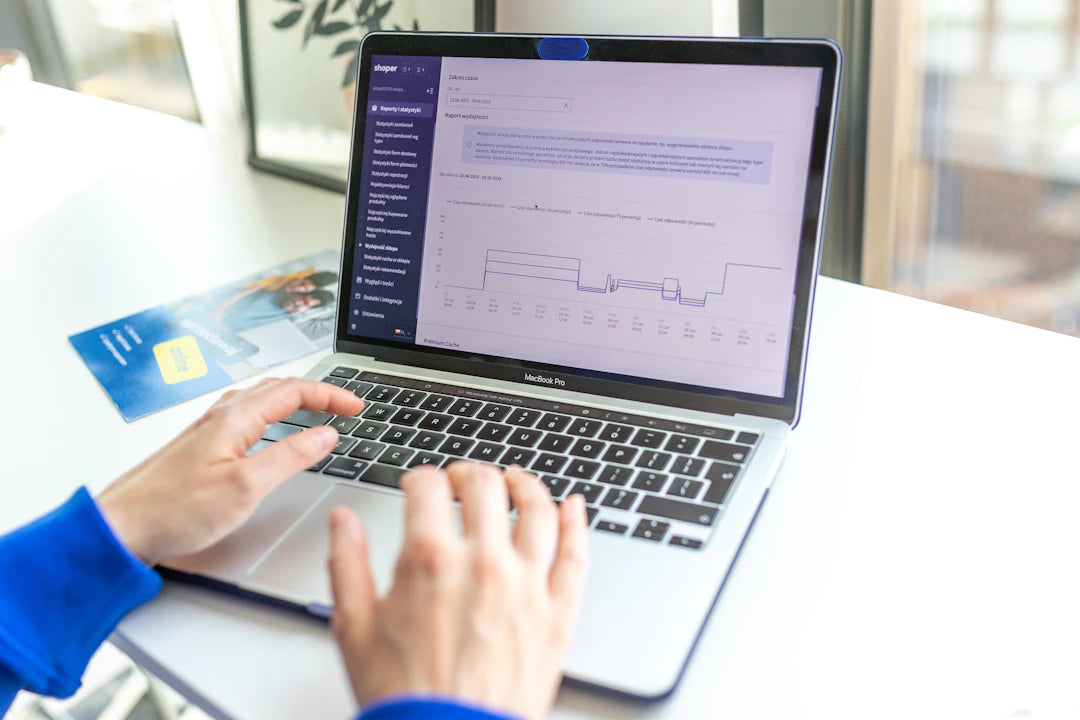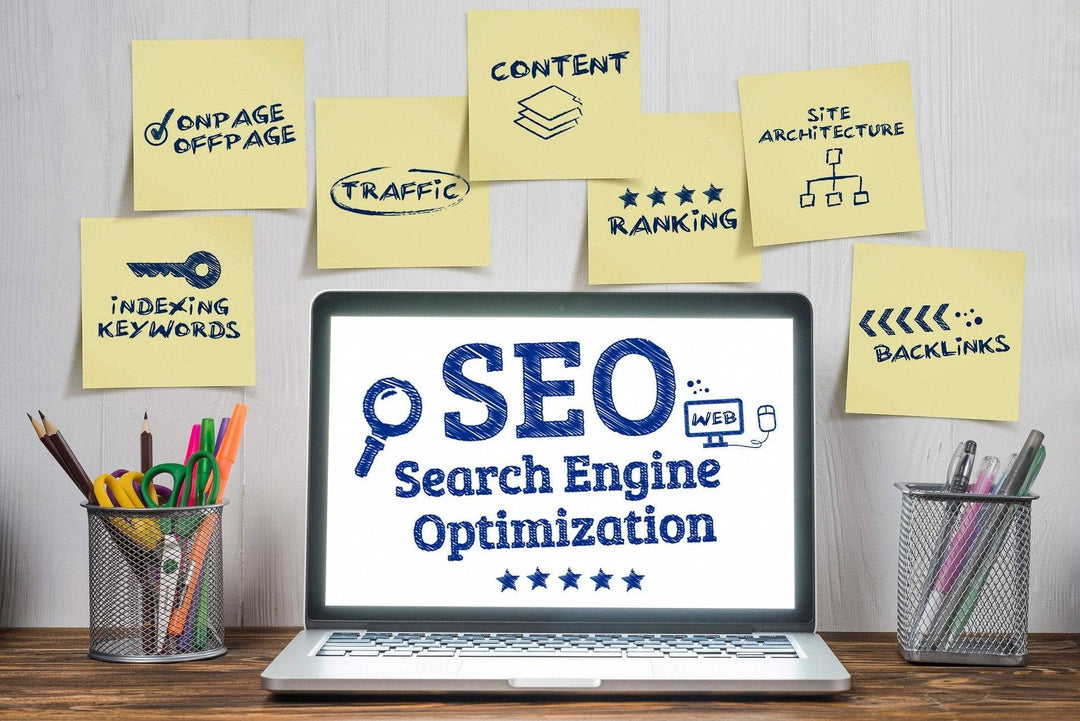Overview
Understanding and leveraging Shopify Analytics is crucial for eCommerce success. It helps track customer behavior, measure campaign performance, and optimize sales strategies. Key features include real-time dashboards, in-depth reports, and tracking KPIs like conversion rate and average order value. Continuous optimization through regular data review and customer engagement enhances business growth. Empower your team with data and insights to stay ahead of the competition and transform your online store.
Frequently Asked Questions
1. What is the importance of analytics in eCommerce?
2. What key features does Shopify Analytics offer?
3. How can I improve my conversion rate using Shopify Analytics?
4. What are Key Performance Indicators (KPIs) I should track in my Shopify store?
5. How can I utilize customer feedback to enhance my Shopify store?
In the fast-paced world of eCommerce, understanding your analytics can be the difference between stagnation and success. For Shopify store owners, harnessing the full power of Shopify’s analytics features is essential to unlock insights, drive traffic, and boost sales. In this comprehensive guide, we will explore the fundamentals of Shopify Analytics and how to leverage them effectively to ensure your online business not only survives but thrives. Let’s dive in!
The Importance of Analytics in eCommerce
Analytics is the backbone of informed decision-making in digital business. Without solid data, you're just guessing, and we all know how that can turn out. Effective use of analytics translates complex data into actionable insights. For Shopify store owners, it means tracking customer behavior, measuring campaign performance, and optimizing sales strategies.
Why Use Shopify Analytics?
Shopify offers a variety of analytical tools that can enhance your understanding of your store’s performance. Here are a few reasons why utilizing these tools is critical:
- Customer Insights: Understand who your customers are and their shopping behaviors.
- Campaign Performance: Determine which marketing strategies are effective.
- Sales Trends: Spot potential growth areas based on historical data.
- Inventory Management: Make informed decisions about product stocking and categorization.
Exploring Shopify Analytics Features
Shopify Analytics provides a rich toolkit of features designed to give you comprehensive insights. Below, we'll explore some of the most significant aspects you should pay attention to:
Dashboard Overview
The Shopify Admin dashboard is your starting point for analytics. It provides an at-a-glance view of your store's performance in real-time. Here, you'll see key metrics such as:
- Total sales
- Total orders
- Online store visitors
- Conversion rate
By regularly checking the dashboard, you’ll stay updated on performance trends and can react quickly if something looks off.
Reports and Analytics
Shopify provides various analytical reports that delve deeper into your data:
- Sales Reports: Analyze sales performance over various periods and compare them.
- Customer Reports: Segment customers based on purchase history and behavior.
- Acquisition Reports: Identify how customers are finding your store.
These reports not only highlight successes but also expose areas needing improvement.
Using Key Performance Indicators (KPIs)
Every business needs to track its KPIs to measure success accurately. In your Shopify store, the following KPIs are essential:
Conversion Rate
Your conversion rate represents the percentage of visitors to your store who complete a purchase. If your conversion rate is low, investigate potential issues in the sales funnel, product descriptions, or site navigation.
Average Order Value (AOV)
AOV measures the average dollar amount spent each time a customer places an order. Increasing AOV can significantly enhance overall sales without increasing traffic. Consider offering related products, upselling, or implementing bundles to boost this metric.
Customer Retention Rate
This KPI indicates how well you keep your customers coming back. High retention rates often signal that consumers are satisfied with their shopping experience. Use tools like email campaigns and loyalty programs to encourage repeat purchases.
Setting Up Goals and Tracking Success
Incorporating defined goals into your Shopify Analytics framework helps measure your progress and success more effectively. Here’s how to set up your goals:
Define Clear Objectives
Start with specific objectives you want to achieve within a set timeframe. Objectives might include increasing traffic to your store, improving your conversion rate, or growing your social media following.

Track Progress
Shopify allows you to set up goals to track your progress towards these objectives. Use the insights from your analytics to adjust your strategies as needed.
Leveraging Predictive AI Search in Retail
One of the most exciting advancements in eCommerce is the rise of predictive AI search in retail. By implementing predictive search features within your Shopify store, you can enhance the customer experience and drive conversions. Here’s how it integrates with analytics:
Understanding User Behavior
By closely monitoring the searches your customers conduct, you gain insight into their preferences and behaviors. This information can guide product offerings and marketing tactics.
Personalized Shopping Experience
Data from predictive AI search can tailor recommendations for users, leading to a more personalized shopping experience. This not only increases user satisfaction but also helps to boost sales as customers discover products they may not have found otherwise.
Ongoing Optimization of Your Store
Using Shopify Analytics isn't a one-time task. Continuous optimization based on insights gathered from analytics is vital to your eCommerce success. Here are actionable steps to ensure ongoing improvements:
Regularly Review Data
Dedicate time each week or month to review your analytics data comprehensively. Look for trends over time instead of isolated incidents to understand what’s working and what isn’t.
Testing and Experimentation
To understand what elements boost your sales and engagement, run A/B tests on product pages, landing pages, and marketing emails. Analyze the outcomes and build on those successes.
Engaging with your Audience
Engaging with customers goes beyond just selling products; it’s about creating a community. Analyzing customer feedback and engagement metrics can provide essential information.
Feedback Channels
Be proactive in asking for feedback from customers through surveys, product reviews, and social media interactions. Use this information to refine your products and improve the overall shopping experience.
Utilizing Social Media Insights
Your social media analytics should not go neglected. They provide a wealth of information regarding audience type, engagement levels, and effective content. Use that data to guide your marketing campaigns and customer outreach strategies.
Empowering Your Team with Analytics
Sharing insights from your analytics with your entire team is crucial. Empowering your employees with the right data encourages collaboration and fosters a culture centered on data-driven decision-making.
Workshops and Training
Consider hosting a Shopify digital marketing workshop to help your team understand how to utilize analytics effectively. This can elevate group performance and inspire innovative campaigns that resonate with your target audience.
Staying Ahead of the Competition
In the competitive world of eCommerce, leveraging your analytics can provide a significant advantage. The insights collected through Shopify analytics allow for agility and precision in strategy execution, ensuring you stay ahead of competitors. Focus on understanding not just the numbers, but the stories they tell about your customers.
Emphasize Unique Selling Propositions
Differentiate your offerings based on what the analytics reveal about customer preferences. Tailor your marketing to emphasize your strengths, and consistently strive for improvement based on the data.
Ready to Transform Your Business?
Understanding Shopify Analytics isn't merely a skill—it's a necessity for any serious eCommerce entrepreneur. By utilizing these insights, optimizing your strategies, and engaging with your customers, you can build a thriving online business. Remember, it’s not just about the data you collect; it’s about the meaningful actions you take based on that data. With this knowledge, you’ll be well-equipped to navigate your Shopify store towards unprecedented success!
Linked Product

Shopify Digital Marketing Workshop / 2-day Intensive Class
The Shopify Digital Marketing Workshop is designed for Shopify store owners and e-commerce marketers looking to enhance their digital marketing skills. Participants will gain practical knowledge in key areas such as SEO, Google Ads, and email marketing, allowing them to effectively boost visibility and drive sales. This intensive two-day class also focuses on data analysis, equipping attendees with the tools to optimize their marketing strategies post-workshop.
View Product





Leave a comment